../../../..//2008/04/23/bob-lawless-considers-why-fewer/
Bob Lawless considers why fewer homeowners walk away from “underwater” mortgages than you might expect. [Credit Slips]
Thanks for visiting Consumerist.com. As of October 2017, Consumerist is no longer producing new content, but feel free to browse through our archives. Here you can find 12 years worth of articles on everything from how to avoid dodgy scams to writing an effective complaint letter. Check out some of our greatest hits below, explore the categories listed on the left-hand side of the page, or head to CR.org for ratings, reviews, and consumer news.

../../../..//2008/04/23/bob-lawless-considers-why-fewer/
Bob Lawless considers why fewer homeowners walk away from “underwater” mortgages than you might expect. [Credit Slips]
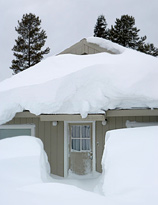
If you have an open home equity line of credit you were counting on for renovations or other projects, you might want to read CNN Money’s article about how lenders are freezing them around the country. The main triggers for HELOC freezing are credit score changes and a rapid drop in home value in your area. The freeze may also be a computer-determined action, so if your HELOC suddenly goes away and you don’t think it was justified, it may be worth checking your FICO score and then contacting the lender to reopen the line or renegotiate it.
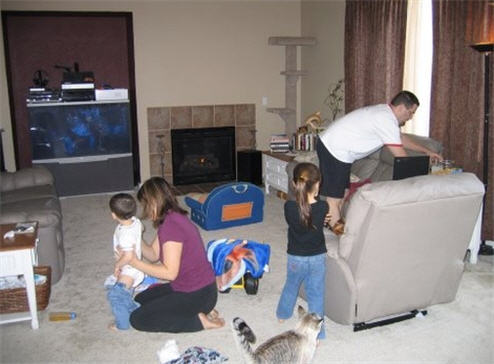
We’ve been hearing tales of suburban McGhost-Towns that were submerged by a tidal wave of foreclosures at the height of the subprime meltdown and are now just sitting there, the lawns turning brown one by one.

Reader Eric is pre-approved and ready to buy a house in South Florida. You’d think it would be a piece of cake considering the, uh, climate down there. Apparently not.
The market down here is really bad. I’d say that more than 75% of the houses we’ve seen are short sells or foreclosures. People are really down about the housing situation. You are constantly hearing on the news about how horribly hard it is to sell a house. Houses are selling way under their purported value.

The compassionate conservatives helming our government have an ingeniously simple new plan for homeowners facing foreclosure: take 30 days, pack your bags, and then get the !@#$ out.
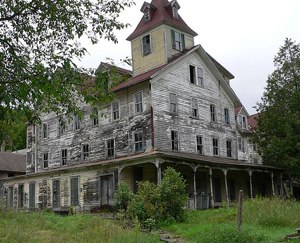
A new survey from Reuters and the University of Michigan found that a third of homeowners felt their homes lost value in February, compared to 16% a year ago.
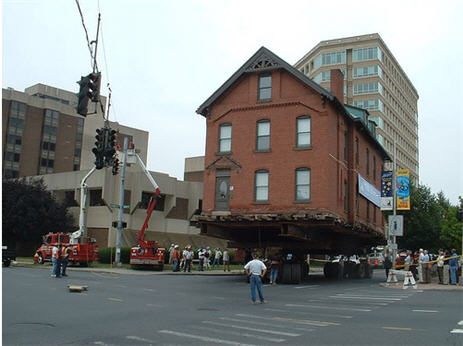
Home prices experienced the steepest drop on record for a single quarter says the National Association of Realtors:
The national median price drop of 5.8%, to $206,200 from $219,300, was the steepest ever recorded by the National Association of Realtors (NAR), which has been compiling the report since 1979.
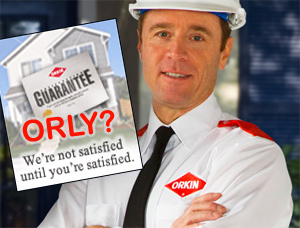
Chris writes, Last year we had Orkin come and get rid of a termite problem in our 60 year old house. It is a small three bedroom house and we were putting concrete siding on and discovered some termite trails.

If you’re ready to buy a home and don’t mind a little ghoulish bargain-hunting, now is a great time to hit the various foreclosure sites online, reports Reuters.

In Cuyahoga County, Ohio there are 17,000 vacant, foreclosed properties. In Baltimore, there are 16,000. These properties sit, unmaintained, with boarded up windows, affecting not just their own value, but the values of homes nearby.
../../../..//2008/02/04/the-epa-says-hot/
The EPA says hot tap water can contain as much lead as a cheap toy from China—”We call it dollar-store tea,” says an EPA spokesman. Okay, seriously, the EPA said none of that but they do warn you to not drink hot tap water.
../../../..//2008/01/31/in-the-uk-you-can/
In the UK, you can now buy an IKEA house. No, you do not build it with an Allen wrench. [BoKlok]

The already troubled housing market is just getting worse says the latest report from S&P Case/Shiller. The 10-City Composite’s annual decline of 8.4% is a new record low for the index, which started recording home prices in 1987.
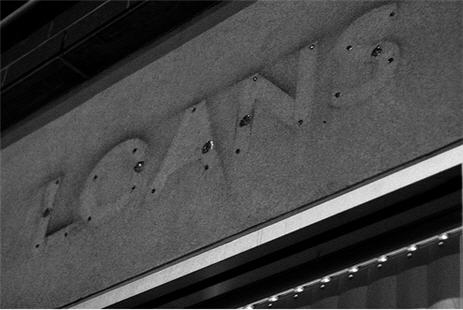
Here’s one that’s sure to start some intense debate: If you’ve made a bad investment and your house isn’t worth what you thought it was going to be, is it OK to just walk away?

Do you love big city livin’, but you’re tired of spending 65% of your monthly salary on a 45-year-old studio apartment with a bathroom that feels like it was transplanted from an RV? (Yeah, we’re talking about NYC.) BusinessWeek lists the results of a recent survey of rental prices in cities with populations larger than one million. The best deal is (drum roll): Oklahoma City, with an average rent of $520 a month!

A new study says that 86,000 mortgage related jobs were cut due to the weakening housing market, says CNNMoney. Diabolical mustache-twirling evidence-forging lender Countrywide unburdened itself of the most workers, cutting 11,665.
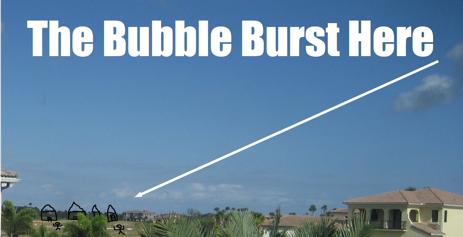
Municipal ledger hounds are worried that local governments will slash services as the imploding housing market chokes off access to lucrative property tax revenue. The New York Times visited the future retirement destination of its readers, South Florida, to see firsthand the devastating affect the subprime meltdown can have on communities. For anyone who says “What housing crash, my community is fine,” hop across the jump for a look at your potential future.

Wired has a short article subtitled, “How our technolust helped bring down the housing market.” The article is more sensible than the headline, however—it really focuses on new developments in the housing market, and how expensive it is to retrofit even newly built homes with new (or future) technology: “‘[Remodeling] can be done, but you really need to want it,’ says Kermit Baker, a Harvard economist who studies the remodeling market.” What’s needed, the author argues, is an approach to new home construction that treats homes as dynamic spaces that can be more easily reconfigured to meet the requirements of new owners. Not that anyone is building a home right now, but it’s an interesting thing to keep in mind when you’re ready to leave your shantytown and re-settle in the suburbs.
![]()
Part of ![]()
Founded in 2005, Consumerist® is an independent source of consumer news and information published by Consumer Reports.
